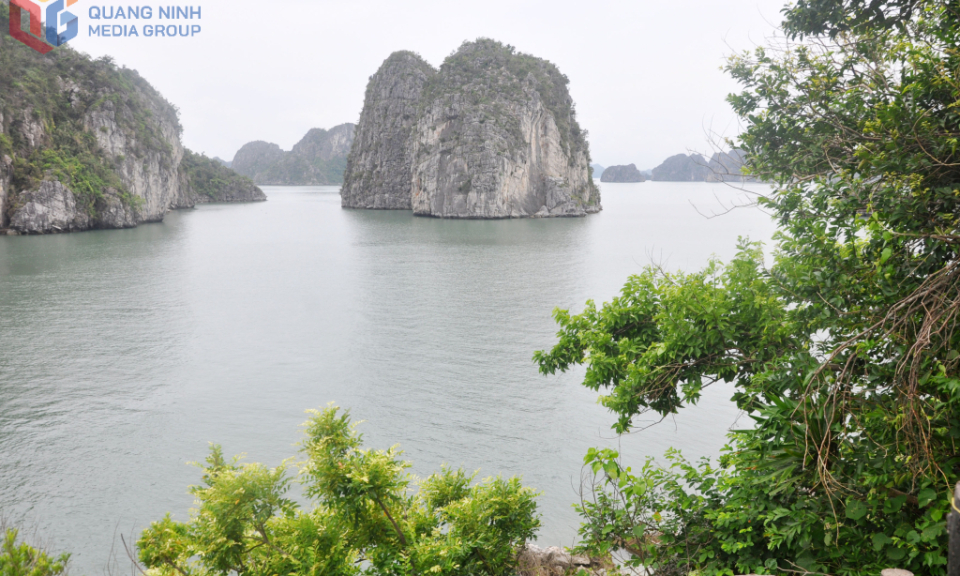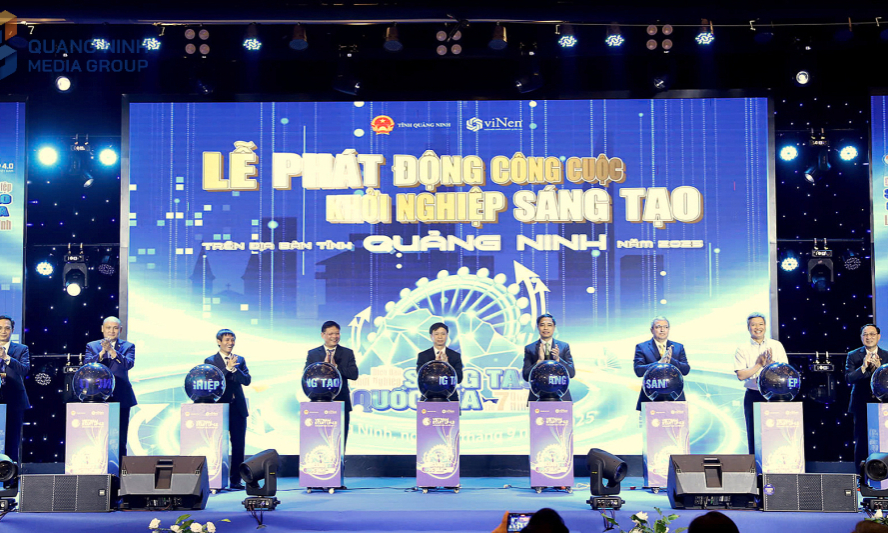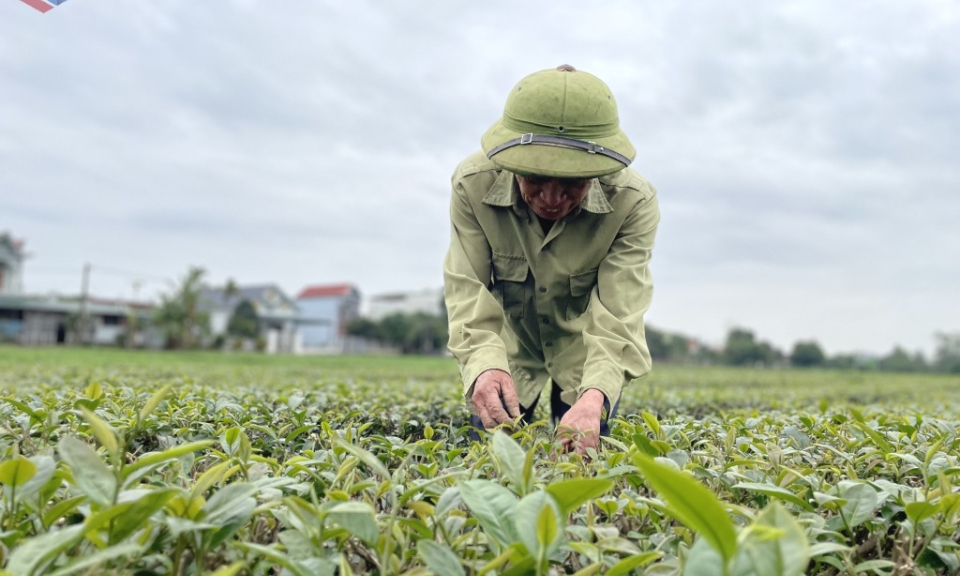Việt Nam a priority in China's policy of neighbourhood diplomacy: Premier
The country will continue upholding the significant achievements and common perceptions reached by high-ranking leaders of both sides to elevate the comprehensive strategic cooperative partnership and build the Việt Nam-China community with a shared future that carries strategic significance.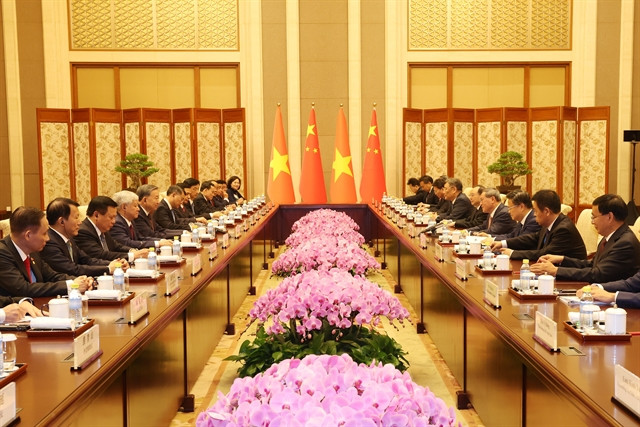
China consistently considers its relationship with Việt Nam a priority in its policy of neighborhood diplomacy, said Chinese Premier Li Qiang at a meeting with visiting Vietnamese Party General Secretary and President Tô Lâm in Beijing on Monday.
Welcoming Lâm on his first state visit to China, which is also his first overseas trip in his new role as General Secretary of the Communist Party of Việt Nam Central Committee, Li said that the visit reflects the high importance and top priority that the Vietnamese Party and State place on the bilateral relationship.
He believed it will provide a strong impetus for the comprehensive strategic cooperative partnership and the Việt Nam-China community with a shared future to enter a new phase with more substantive outcomes.
The Chinese Party and Government remain steadfast in supporting Việt Nam to comprehensively promote its reform, accelerate industrialisation and modernisation, and successfully build socialism suited to Việt Nam's conditions, he said.
Lâm said Việt Nam always considers the development of friendly neighbourliness and comprehensive cooperation with China a consistent policy, a strategic choice, and a top priority in its foreign policy of independence, self-reliance, multilateralisation and diversification of external relations.
The country will continue upholding the significant achievements and common perceptions reached by high-ranking leaders of both sides to elevate the comprehensive strategic cooperative partnership and build the Việt Nam-China community with a shared future that carries strategic significance.
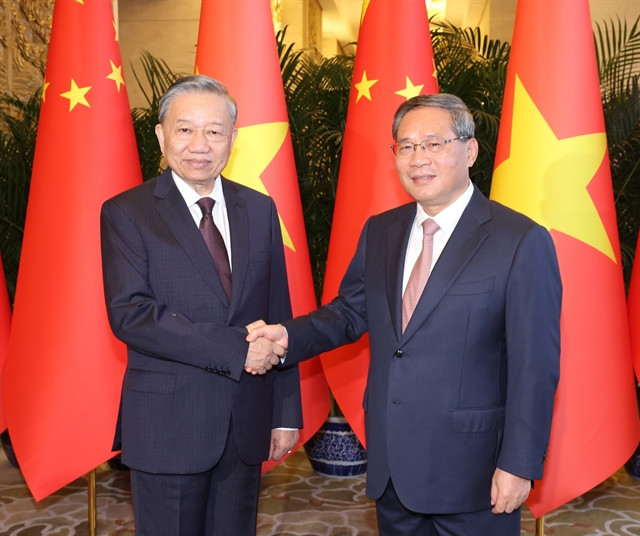
Both sides expressed pleasure that the relationship between the two Parties and countries has reached a historic development to the most intensive, comprehensive and substantive level ever seen, with significant results such as reinforced political trust, elevated relationship, regularly maintained exchanges and contact at all levels, thriving trade collaboration, strongly growing Chinese investments in Việt Nam, strong tourism recovery, and enhanced locality-to-locality cooperation and people-to-people exchange.
Holding that the two countries boast huge potential for cooperation, the two leaders agreed to make joint efforts to bolster political and economic confidence, effectively build the Việt Nam-China community with a shared future that carries strategic significance, taking the bilateral ties to a new development period in the direction of the “six major orientations”, maintain regular contact at all levels, and promote exchanges and cooperation via Party, Government, National Assembly/National People’s Congress, and Fatherland Front/People's Political Consultative Conference channels.
They concurred to expand cooperation in such key areas as foreign affairs, defence and security, enhance substantive collaboration to carve out further achievements, step up locality-to-locality connection and people-to-people exchange, well arrange activities to mark the 75th anniversary of the diplomatic relations, consolidate a solid social foundation, create new motives for the development of the bilateral ties, and maintain close coordination and cooperation as well as support each other at multilateral forums and mechanisms.
Party General Secretary and President Lâm welcomed China’s engagement in developing three standard-gauge railway projects that connect the two nations, the Vientiane – Vũng Áng railway, and the metro system in Hà Nội. He went on to ask China to continue opening up its market for high-quality farm produce from Việt Nam, and create favourable conditions for the country to set up its Consulate General in Chongqing, and trade promotion offices in China.
He also suggested China accelerate its large-scale and high-quality investment projects with modern technologies in Việt Nam, soon pilot smart border gates, consider cooperation in payment in local currencies, and step up collaboration across the areas of science-technology, innovation, green transition, digital transformation and high-tech agriculture.
Lâm also said that he hopes the two sides will boost cooperation in education, culture, tourism, and natural disaster prevention and mitigation, rescue and urgent response.
Agreeing with Lâm, Li held that the two countries need to stay consistent with their cooperation structure and win-win development, expressed his readiness to maintain exchanges at all levels, promote the role of the China – Việt Nam Steering Committee for Bilateral Cooperation in enhancing the bilateral relations following the “six major orientations”, improve rail connection between Việt Nam and Europe via China, accelerate the feasibility study of the Lào Cai – Hà Nội – Hải Phòng railway, make planning for the Đồng Đăng – Hà Nội, and Móng Cái – Hạ Long – Hải Phòng railways, and facilitate Vietnamese high-quality agro-fishery products’ entry into China.
He suggested both sides continue enhancing their neighbourliness and friendship, bolstering people-to-people exchange, implementing people’s livelihood projects, working together in the fields of vocational training, and promoting the role of the Việt Nam – China Friendship Palace. He laid stress on the persistence of the genuine multilateralism, and open regionalism, adding China stands ready for enhanced cooperation at multilateral forums.
The two sides also discussed regional and international issues of mutual concern. They agreed to jointly control and satisfactorily settle disagreements, maintain peace and stability at sea, and consolidate a favourable environment for the development of each nation.
Lâm suggested the two countries seriously carry out the high-level common perceptions, and the Việt Nam-China agreement on basic principles guiding the settlement of sea-related issues, respect international law, particularly the 1982 United Nations Convention on the Law of the Sea (1982 UNCLOS), respect each other’s legitimate rights and interests, promote the efficacy of the negotiation mechanisms on the sea-related issues, satisfactorily handle issues relating to fishing vessels and fishermen, well control the situation at sea, and maintain the stable, positive development momentum of the bilateral ties, as well as peace and stability in the region.


